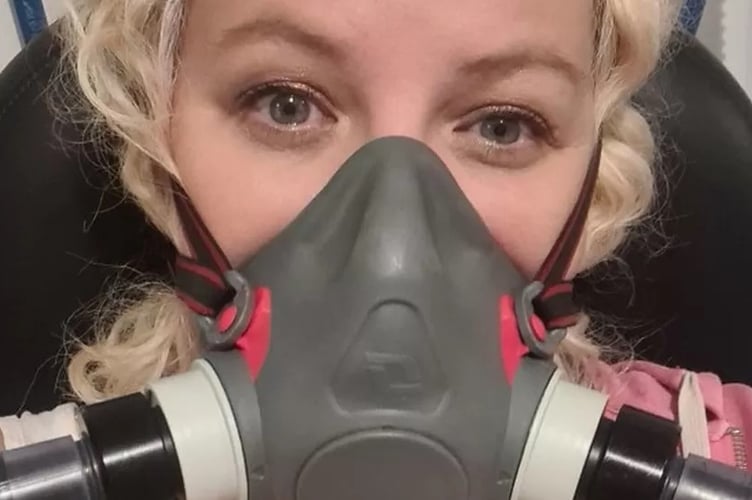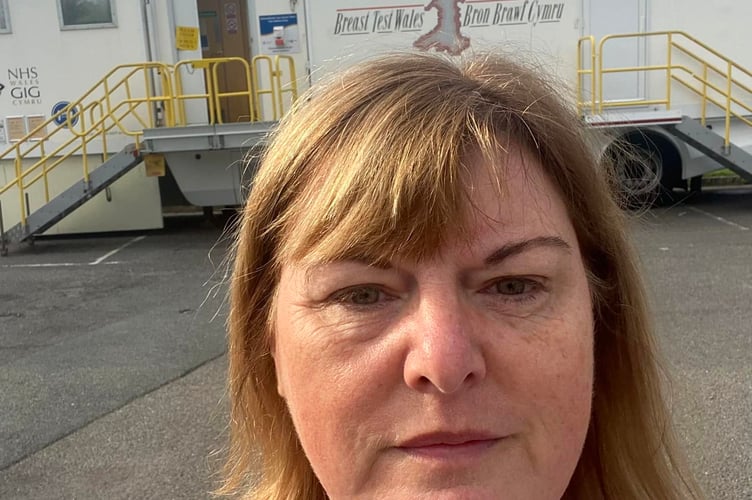New analysis shows the UK is lagging decades behind other countries when it comes to survival rates.
The analysis from Macmillan Cancer Support reveals that several UK cancer survival rates are only just reaching levels that other European countries, such as Sweden, had achieved in the early 2000s.
On top of this, the charity warns that cancer waiting times across the UK were among the worst on record last year and people with cancer are facing significant challenges across all areas of their life including their physical and mental health, their finances and more.

Macmillan CEO Gemma Peters says “cancer care is at breaking point, but this is a political choice: better is possible” and is urging the next UK government to “commit to transforming cancer care”.
Cancer survival rates in the UK are as much as 25 years behind other European countries, the charity warns.
The analysis by Macmillan Cancer Support shows that the UK’s survival rates for several common types of cancer are only just now reaching what countries such as Sweden and Norway had already achieved in the early 2000s, or even earlier in some cases. The charity, which has a 113-year history of ensuring the voices of people with cancer help drive improvements, says that cancer care across the UK is making people feel "left behind" but that better is possible. Its analysis suggests if the UK’s survival rates matched the best in Europe, thousands more people who are diagnosed each year in the UK would survive their cancer for at least five years.
The research shows that the latest five-year survival rates for men with colon cancer in England and women with colon cancer in Wales are still below what Sweden had already achieved by the early 2000s, with a similar picture for prostate cancer in Scotland as well as one-year survival for male colon cancer in Northern Ireland. In some cases, the gap is even larger, with survival for women with cervical cancer in England lagging 25 years behind Norway.
More than 390,000 people are diagnosed with cancer each year in the UK – at least one person every 90 seconds..

Macmillan warns that it’s not just survival rates that need addressing as a matter of urgency and cancer care throughout the whole system is at 'breaking point’. Healthcare professionals are doing the very best they can, but they are under resourced and waiting times for cancer treatment across the UK were among the worst on record in 2023.
There are also huge differences in people’s experiences of cancer care - this includes research showing that people from ethnically diverse backgrounds in the UK have to wait longer to be diagnosed for several types of cancer, an additional burden no-one should have to carry. Previous international comparison studies have consistently shown the UK has among some of the worst cancer survival rates in Europe, however results published from these studies do not yet include the latest available data, due to the scale of data collection and analysis .
To better understand the current picture in the run-up to the General Election, Macmillan has compared the most up-to-date official statistics for cancer survival across the four UK nations with the equivalent data for Sweden, Norway and Denmark. All three countries have relatively similar healthcare systems to the UK and also publish high-quality cancer survival statistics.
As well as considerably poorer survival for colon, prostate and cervical cancer, the comparison (see table below) also shows survival rates for breast cancer are lagging up to 10 years behind.
The data also shows that other countries have been able to achieve substantial improvements in survival in recent years, with five-year survival rates for men with colon cancer in Denmark increasing from less than 60 per cent for those diagnosed in 2007-2011 to more than 70 per cent in the most recent figures. In comparison, the five-year survival rate for men with colon cancer in England has shown little to no improvement over the same time period and may even be getting worse.
On top of this, further Macmillan data shows that hundreds of thousands of people with cancer are struggling with physical and emotional concerns as a result of their diagnosis, and many are facing serious financial issues, with the charity warning that the cost-of-living crisis is now having a higher impact on people with cancer’s physical health than it has done since June 2022. For this to change the charity is urgently calling for a radical, new cross-government approach to cancer care, with a fully funded strategy to address the impact cancer has on every aspect of a person’s life.
Ms Peters says: “Behind the shocking data are thousands of real people whose entire worlds have been turned upside down by cancer. Helping people with cancer live longer is important but so is the quality of their lives. They shouldn’t have to spend their days worrying about delays to their treatment or how they’ll be able to afford the petrol or bus fare they need to get to their next appointment; cancer is enough to have to deal with.
“It’s clear that cancer care is at breaking point but this is a political choice and better is possible. Cancer has led the way in changing the healthcare system for the better before, with Macmillan driving the creation of Cancer Nurse Specialists to ensure patients are treated by professionals with the right skills and expertise, and by developing groundbreaking digital assessments to ensure every person diagnosed has the best chance of receiving the care and support they need. It’s time to lead the way once again.
“Together, with politicians and partners, we can transform cancer care for a more hopeful future for people with cancer and the people who support them. We urgently need the next UK government to prioritise a long-term cross-government strategy that revolutionises cancer care and ensures everyone with cancer has access to the care they need, every step of the way.”
Julie Grabham from Lampeter was diagnosed with breast cancer in 2022 and waited well over 100 days for treatment to begin. She told Reporter Debbie Luxon: “The reality is that cancer knocks you over, then the current cancer care system just doesn’t give you a chance to get your feet back under you.
“I’ve had constant panic and anxiety from one appointment to the next, and felt I lost a lot of control – not only to my cancer diagnosis, but to a cancer care system that is confusing, disjointed and which often fails to treat you as a person.
I totally agree with MacMillan. From my own personal experience and listening to others in the CHILL - cancer help in local lives group, living with cancer is all consuming, mentally, physically and financially. As Caroline Griffiths of CHILL says. living with cancer is a full-time job.
“The ongoing stress sometimes overshadows the diagnosis- all this can be improved with more funding, better distribution of funds and improved systems.
“There is a huge disparity in waiting times for scans and tests between different hospitals, even those within the same trust. For example, a mammogram carried out in Llanelli can mean results the same day, yet in Singleton, you could wait weeks. That simply is not acceptable.
“We also know that employers can do more to support those living with cancer. I’m pleased that my multi award winning workplace cancer campaign, the JGHRPledge already has 150 businesses making a difference to thousands of employees.
“If I as an individual living with cancer can make such a huge difference, surely the Welsh government and NHS can do too,” she said.
In April 2024, more than 800 people with cancer in Wales waited more than 62 days to start treatment from first being suspected of having cancer – this was approaching half (46 per cent) of all those who started treatment in that month. Performance dropped substantially from the previous month and was worse than in the same month of the past four years, showing that NHS cancer services in Wales are still struggling under intense pressure.
Recent Macmillan analysis shows 2023 was the worst year on record for cancer waiting times in Wales.
The national cancer waiting times target in Wales has never been met since first being introduced, and an interim recovery target set by the Welsh Government has also been missed.
For some cancer types, performance remains very concerning. For example, in April 2024 only one in four people with head and neck cancer (26.4 per cent) started their treatment on time. The Macmillan analysis shows that survival rates for at least two common types of cancer in Wales (colon and rectal cancer in women) are only just now reaching the levels that Sweden and Norway were already achieving in the early 2000s.
Glenn Page, Policy and Public Affairs Manager for Macmillan Cancer Support, said the data “shows that far too many people living with cancer are still facing devastating treatment delays, and hardworking healthcare professionals are struggling to stay afloat in a system that simply cannot cope.
“Cancer can affect every part of someone’s life – from healthcare and finances to work, housing and relationships – but right now the healthcare system simply does not have the resource to provide the person-centred care that people desperately need.
“The latest Macmillan research shows that survival rates for at least two common types of cancer in Wales are only now reaching what countries such as Sweden and Norway were already achieving way back in the 2000s. We are lagging many years behind on cancer care. If Wales was matching the best in Europe then many more of the people who are diagnosed with cancer every year would survive their cancer for at least five years.
“It doesn’t have to be this way. The Welsh Government desperately needs to listen to the concerns of people living with cancer and make good on the promises of its Cancer Improvement Plan; by delivering real change and improvement within cancer care so cancer patients get the timely and quality care they urgently need.”
Ailsa Guard, 48, from Swansea, was diagnosed with breast cancer in 2021. She waited 141 days to start treatment and has faced continual delays throughout her cancer experience. She said: “I have had delays, cancellations and confusions at every stage of my care. And I have had to push and fight at every stage. I class myself as quite strong and determined.
“Without that I seriously believe that I would have simply been lost to the system and not able to cope at all because of the lack of information, the lack of support and the anxiety of endless cancellations and delays. Being a ‘difficult’ case seems to have constantly seemed to lead to less support, less urgency rather than more.”
A Welsh Government spokesperson told the newspaper: “Access to cancer treatment is a priority and clinical teams and managers across the NHS in Wales are working hard to improve cancer performance.“2023 saw a record number of new referrals for suspected cancer (over 192,000). But 2023 also saw record numbers of patients start treatment for cancer (over 21,700) and a record 165,000 people were informed they don’t have cancer.
“We are investing heavily in cancer services to improve diagnosis and access to high-quality care, and we have also launched a national programme to support recovery in cancer waiting times supported by £2 million per year for three years.”





Comments
This article has no comments yet. Be the first to leave a comment.